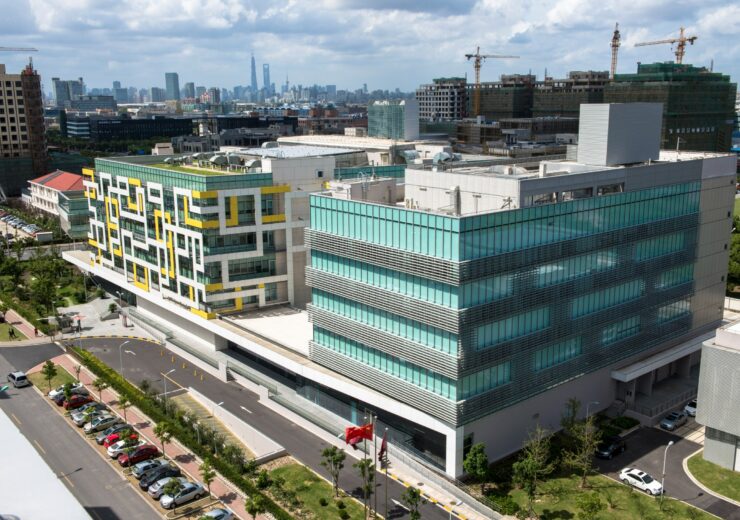The approval was based on the findings from the DESTINY-Breast04 Phase 3 trial in which AstraZeneca and Daiichi Sankyo’s Enhertu reduced the risk of disease progression or death by 50%

AstraZeneca’s headquarter in China. (Credit: AstraZeneca)
AstraZeneca and Daiichi Sankyo’s Enhertu (trastuzumab deruxtecan) has secured approval in China as the first HER2-directed therapy for patients with unresectable or metastatic HER2-low breast cancer.
China’s National Medical Products Administration (NMPA) approved Enhertu as a monotherapy for patients who have received a prior systemic therapy in the metastatic setting or developed disease recurrence during or within six months of completing adjuvant chemotherapy.
Jointly developed and commercialised by AstraZeneca and Daiichi Sankyo, Enhertu is a specifically designed HER2-directed antibody-drug conjugate (ADC).
NMPA approval was based on the findings from the DESTINY-Breast04 Phase 3 trial.
In the trial, ADC lowered the risk of disease progression or death by 50% versus the physician’s choice of chemotherapy in all randomised patients with HER2-low metastatic breast cancer.
Additionally, Enhertu minimised the risk of death by 36% compared to chemotherapy. The median overall survival (OS) was observed at 23.4 months in patients treated with Enhertu versus 16.8 months in those administered with chemotherapy.
Furthermore, the safety profile observed in Enhertu-treated patients in the trial was consistent with what was observed in other trials of the therapy in breast cancer with no new safety signals identified.
AstraZeneca Oncology Business Unit EVP Dave Fredrickson said: “Patients with HR-positive or HR-negative, HER2-low metastatic breast cancer previously had few effective treatment options beyond chemotherapy.
“The results from the DESTINY-Breast04 trial show Enhertu provides a significant improvement in outcomes compared to chemotherapy for patients whose tumours are determined to be HER2-low via routine testing.
“This approval is an important advance in the way breast cancer is classified and treated in China and supports our vision to bring Enhertu to more patients worldwide.”
DESTINY-Breast04 is a global, randomised, open-label, Phase 3 study with the goal to assess the efficacy and safety of AstraZeneca and Daiichi Sankyo’s Enhertu against a physician’s choice of chemotherapy. It randomised patients 2:1 to receive either Enhertu or chemotherapy.
The primary endpoint was defined as progression-free survival (PFS) in patients with HR-positive disease based on blinded independent central review (BICR).
Key secondary endpoints include PFS based on BICR in all randomised patients, OS in patients with HR-positive disease and OS in all randomised patients.
